Khamenei Says Retreating Against US Due To Sanctions Is Big Mistake
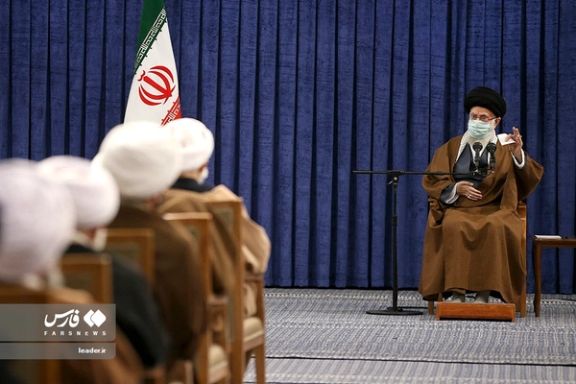
Iran’s Supreme Leader Ali Khamenei says retreating against the United States in exchange for sanctions relief would be a “big and naive mistake.”

Iran’s Supreme Leader Ali Khamenei says retreating against the United States in exchange for sanctions relief would be a “big and naive mistake.”
Addressing members of Iran’s Assembly of Experts on Thursday, Khamenei insisted that to retreat in the face of American pressure or any other power for securing protection against sanctions, will deal a blow to the nation's power.
He added that Islamic Republic’s presence in regional countries and its nuclear program are two factors that contribute to the country’s national power, saying, “Regional presence gives us more strategic depth and national strength. Why should we give it up? Scientific nuclear progress is needed for country’s future”.
Khamenei said it is naïve to reduce Iran’s military programs to get concessions from the West, noting that “security” and military power contributes to Iran’s bargaining power “to fulfill national interests at the regional and global front.” He added, “It is vital for any country to have national power”.
Iran has boosted its uranium enrichment since the United States withdrew from the 2015 nuclear agreement and continued it support for regional militant groups that act as its proxies in various countries. It has also expanded its missile program that West and several regional countries, such as Israel and Saudi Arabia are concerned about.
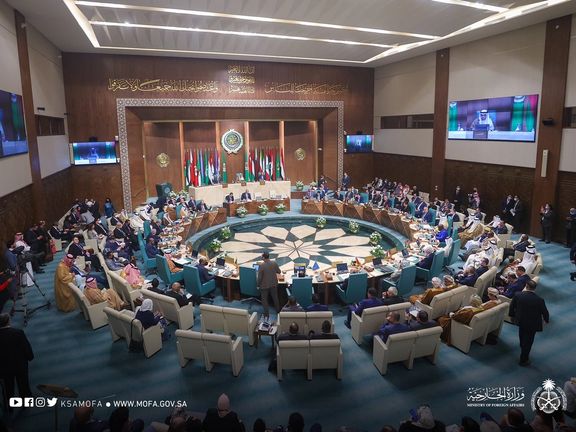
The Arab League has once again criticized the Islamic Republic for its support of militant groups in Arab countries and its ballistic missile program.
The Council of the League of Arab States, which was held at the level of foreign ministers on Wednesday in Cairo, expressed concerns over Iran’s support for separatist elements that threaten Morocco's integrity.
The meeting endorsed a resolution proposed by the Ministerial Committee of the Arab Quartet – comprised of Saudi Arabia, the United Arab Emirates, Bahrain, and Egypt as well as the Secretary-General of the Arab League, and tasked with monitoring and countering Iran’s interventions.
The resolution calls for solidarity with Morocco in confronting the interference of Iran and its ally Hezbollah through arming and training the separatists, describing them as an extension of the Tehran's actions aimed at undermining regional security and stability.
In January, Iran’s Foreign Ministry rejected Moroccan Foreign Minister Nasser Bourita’s claims that the Islamic Republic wants to infiltrate Africa and expand Shiite ideology on the continent, describing the remarks as “unfounded projections”.
Morocco severed diplomatic ties with Iran in 2018, saying the Tehran-backed Lebanese group Hezbollah was training Polisario Front separatist fighters against Morocco in Western Sahara.
Iran-backed Houthis have also launched missile and drone attacks on three occasions against the UAE in January.
Many countries in the region accuse Iran of interference in their domestic affairs by using armed proxy groups.
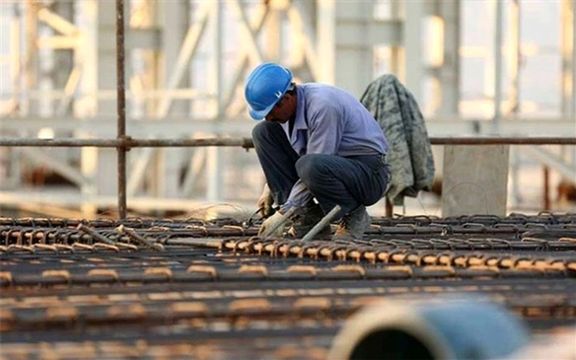
Iran has increased the minimum monthly salary for the next Iranian year (starting March 21) by 15,000,000 rials (about $60) or around 57 percent.
After a 15-hour session of intense negotiations that started Wednesday evening, members of the Supreme Labor Council agreed to raise the minimum wage from 26,550,000 rials to 41,790,000 rials, which is nearly $170 in today’s exchange rates.
The parliament’s budget committee had announced in January that the minimum salary would be higher at 56 million rials (about $200), noting that the figure was about 20 percent higher than what was proposed by the presidential administration.
With the monetary allowances for housing, food and children, the final wage will increase the total to 62,000,000 rials – almost $250 a month, before $24 is withheld for payroll taxes. The government intends to raise asset taxes after the New Year.
Iran has one of the lowest minimum wages in the world, but salaries were increasing from 20 years ago to about 10 years ago when the minimum wage hit a record high of about $275 in 2010. This coincides with the time when the United Nations Security Council began imposing sanctions to force Tehran to roll back its nuclear program.
Labor groups insist that the poverty line in Iran is now around $400 a month for a family of 3.3 people, so the proposed minimum wage is half of the needed money just to be able to survive.
Considering the roughly 60-percent rise in food prices this year and an over 40-percent inflation rate, most of the population is set to become dramatically poorer.

Two days after Iran launched a military satellite, a key source has claimed victory saying Tehran has successfully resisted US pressures on its missile program.
Nour News close to Ali Shamkhani, the secretary of the supreme national security council said on Thursday that Iran will not negotiate over its defense capabilities. The website also praised Tehran’s negotiators in the Vienna nuclear talks for having thwarted US attempts to force Iran to discuss its missile program.
The website boasted that while the Revolutionary Guard unveiled two underground bases for missiles and military drones on March 5, the rocket carrying the satellite lifted off on March 8.
“These developments took place while the United States and Europe, both in the JCPOA talks [in the past] and in the new process [in Vienna] were insisting that simultaneously missile and regional issues to be discussed and an agreement similar to JCPOA be signed between Iran and the West,” Nour News said.
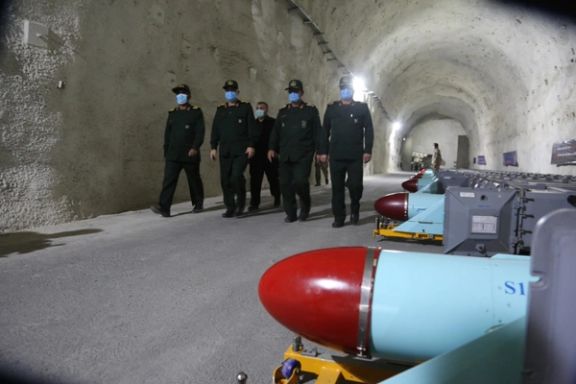
When former president Donald Trump withdrew from the 2015 nuclear deal known as JCPOA, one his main demands was that Iran should stop its ballistic missile program that threatened the region and could be developed into a nuclear delivery system in the future. He imposed ‘maximum pressure’ sanctions to force Iran to renegotiate the JCPOA and accept other conditions, including limiting the missile program.
Nour news said that US pressures failed, and sanctions could not force Iran to make any concessions on other issues.
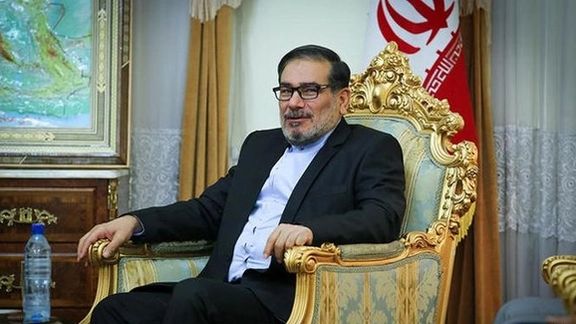
The Biden Administration took office having already signaled that it wanted to return to the JCPOA and kept Iran’s missile program and the issue of its aggressive regional policies off the table, saying that these could be pursued in future talks.
Referring to statements by Biden officials that Trump’s ‘maximum pressure’ was the wrong policy that failed, Nour News said, “negotiations not only had no impact on pursuing [Iran’s] defense, missile and space projects, but the largest military drills involving missiles and drones, as well as unveiling new missile bases,” have been accomplished during nuclear talks.
Nour News then goes on enumerating two “messages”. First, “Iran is not willing to hold any sort of negotiations over its defense, space and regional issues,” and second, “any negotiations and possible agreements cannot be factors limiting Iran’s defense, missile and space programs.”
The issue of Tehran’s space program worries the United States because rockets developed to put satellites in orbit can be easily used as intercontinental ballistic missiles to deliver nuclear warheads, directly putting Europe and the American mainland in danger.
Nour news then delivers a message to domestic political circles who advocated flexibility in talks with the West that their reasonings were wrong and refusing to compromise bears fruit.
“Unfortunately, in the past there was a mentality that Iran’s missile and space programs were provocative and should not be pursued while economic agreements were being signed with Western countries,” the website said. But now, amid nuclear talks in Vienna, Iran “has launched its second military satellite.”
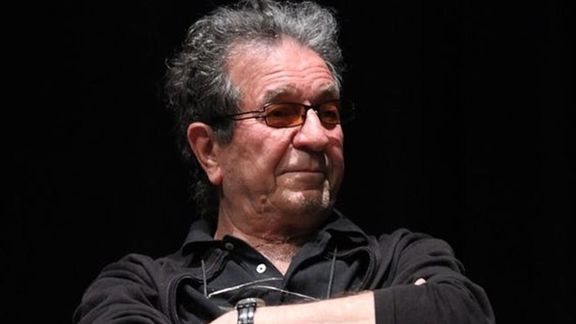
A video showing prominent Iranian filmmaker Dariush Mehrjui angrily protesting a government decision to bar his latest film has gone viral on social media.
In the video, Mehrjui says that the Ministry of Culture did not respect the screening license it had issued for the movie and promises to stage a sit in with his assistants outside the ministry building in Tehran.
Films, like books and musical production go through an arduous process of censorship reviews by government officials. Without their permit, no film can be screened or music released legally.
Ministry officials said that the screening license issued it in 2019 had expired. But the director argued that that his film is not a perishable commodity and does not have an expiration date. Wednesday evening, the culture ministry agreed to renew the film’s screening license but not for the upcoming Iranian New Year, Nowruz, a time that films can make money.
Mehrjui fears that his latest movie La Minor, would be banned forever, as another one of his films Santuri was banned the night before its screening was supposed to start in 2007. Both of these films are about music and musicians, an issue the Islamic Republic has never felt comfortable about.
After Santuri was banned, the movie's producer has a heart attack and died, some say because the ban meant a huge financial loss for him and Mehrjui. Many social media users now warn that anything could happen to Mehrjui, who is now 81 and as the video shows can hardly tolerate the stress caused by the indefinite delay in the screening of his film.
Mehrjui's first motion picture, The Cow (1969) saved the Iranian film industry immediately after the 1979 Islamic revolution as hardliners who had set fire to movie houses during the revolution were against cinema. However, the founder of the Islamic Republic Ayatollah Rouhollah Khomeyni said films like The Cow were good to go on screen. His statement saved Iranian cinema.
Before the revolution, another one of Mehrjui's films, The Circle (1975), that had revealed corruption in blood supply business in Iranian hospitals, created a political controversy that delayed the screening of the movie for two years, but prompted the government to launch the national blood transfusion organization to ensure that hospitals receive clean blood donated by citizens.
After the revolution, Mehrjui who had gone to live in Exile in France, returned in 1986 and made The Lodgers, which also became controversial as many viewers and critics believed the film depicted the story of Iran's transition after the revolution.This was the story of a house on the verge of collapse with many tenants from various walks of life. At the end of the movie as the man living on the top floor put too much burden on the roof by making a roof garden, the building collapsed as soon as a pigeon sat on the water tank on the roof.
In the 1990s Mherjui became a national celebrity by making his trilogy about the problems of Iranian women: Sara (1992), Leila (1996) and The Lady (1999). The Lady depicted the story of a woman let down by her husband. While her husband is away, poor families in the neighborhood occupy her house while she is still living there. The film was frowned at by the government as another attempt to portray the revolution in a bad light, and was banned after a few days in cinemas.
Regardless of the popularity of his films, the government and its censorship apparatus never left Mehrjui alone. The latest attempt by the government to indefinitely delay the screening of La Minor, is seen by many viewers and film industry activist as another blow against an artist that has done nothing other than doing his job of showing the Iranian society to itself.
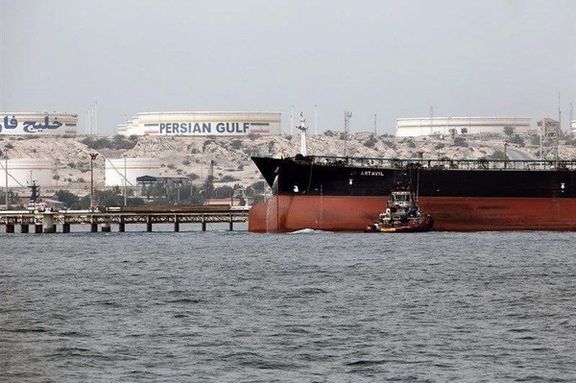
The Republican Study Committee (RSC) has unveiled new legislation, titled the ‘No Oil From Terrorists Act’, to block purchase of oil products from Iran.
The study group said on Tuesday that the Biden administration needs to focus on boosting domestic energy supplies rather than funding terrorist regimes following the ban on Russian oil over the invasion of Ukraine.
The GOP members of Congress are trying to prevent replacing Russian oil with new imports from Iran amid rising gas prices, saying Biden should lift his executive orders that canceled the Keystone XL pipeline from Canada and froze new oil and gas leases on federal lands.
RSC chairman Jim Banks says Biden crushed the energy industry when “he left Americans dependent on our foreign adversaries for oil. This sent gas prices through the roof and allowed Putin to fund his unprovoked war."
"To add insult to injury, the Biden administration is now considering buying oil from Iran, the world’s largest state sponsor of terror. There is absolutely no reason to import terrorist’s oil when we can drill better, cheaper, and cleaner right here at home", Banks continued.
Republican Senator Marco Rubio said in a Fox news opinion piece on Wednesday that Iran is supplying Russia with illicit oil to finance his war in Ukraine, adding. “This is alarming to say the least, because America and its allies are on the verge of providing a $10 billion windfall to the terrorist regime in Tehran”.
Sen. Rubio did not provide any more details of the alleged scheme.